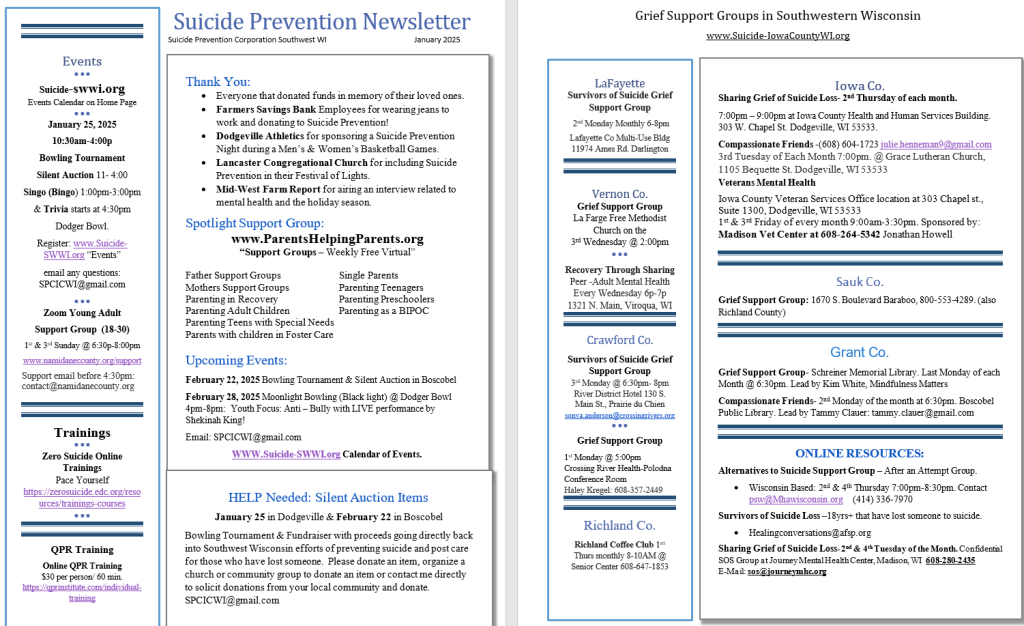






Old habits can be hard to break, and new habits hard to make. But with these six basic steps, you can develop new, healthy behaviors that stick.
How to Break Bad Habits and Change Behaviors | American Heart Association




An honor to participate in Operation Green Light in recognition of Grant and Iowa County Veterans and their families this week as we celebrate Veterans Day!
#Veterans#veteransupport#veteranshelpingveterans#veteranstrong

This Veteran’s Day we are also honoring the spouses and families of Veterans. Veteran spouses and families often face unique challenges and sacrifices due to the nature of military life. Here are some of the most common sacrifices they experience:
Frequent Relocations
Military families move often, sometimes every few years. Constant moves mean spouses and children must frequently adapt to new schools, jobs, friends, and communities, which can disrupt social and educational stability.
Extended Periods of Separation
During deployments or training exercises, service members are often away for months or even years. Spouses must take on additional responsibilities at home, essentially serving as single parents and managing the household alone. This extended separation can strain relationships and be emotionally challenging for both the service member and family members left behind.
Career Sacrifices for Spouses
Due to frequent moves and the unpredictability of military life, many military spouses find it challenging to maintain stable careers. Gaps in employment and job market challenges can limit their professional growth and financial independence.
Emotional and Mental Health Struggles
Families of veterans, especially those who served in combat, may experience stress and worry about the safety and well-being of their loved ones. When veterans return, they may struggle with PTSD or other mental health challenges, which can impact family dynamics and place a strain on relationships.
Financial Uncertainty
Although the military provides certain benefits, some families face financial challenges, especially after leaving the service. Veterans might struggle to find stable employment or may need to rely on benefits that sometimes don’t fully meet their needs.
Challenges with Reintegration
When veterans return home, especially after long or multiple deployments, the transition to civilian or family life can be difficult. Adjusting to a more routine lifestyle, reconnecting with family, and addressing any physical or emotional scars can take time and patience from everyone involved.
Impact on Children
Children of veterans and active-duty members may experience emotional difficulties due to parental separation or the stress of frequent moves. They may also struggle to understand and cope with the challenges their parent faces, especially if that parent returns with visible or invisible wounds of war.
These sacrifices highlight the resilience and strength of military families, who play a critical role in supporting veterans and contributing to their overall well-being during and after service.
#veteranspouses#veteranfamily#VeteransDay#VeteranSupport#VeteransDay2024